
Richard Nathaniel Wright was an American author of novels, short stories, poems, and non-fiction. Much of his literature concerns racial themes, especially related to the plight of African Americans during the late 19th to mid 20th centuries suffering discrimination and violence. His best known works include the novella collection Uncle Tom's Children (1938), the novel Native Son (1940), and the memoir Black Boy (1945). Literary critics believe his work helped change race relations in the United States in the mid-20th century.

James Arthur Baldwin was an American writer and civil rights activist who garnered acclaim for his essays, novels, plays, and poems. His 1953 novel Go Tell It on the Mountain has been ranked among the best English-language novels. His 1955 essay collection Notes of a Native Son helped establish his reputation as a voice for human equality. Baldwin was a well-known public figure and orator, especially during the civil rights movement in the United States.

Thomas Sowell is an American economist, social philosopher, and political commentator. He is a senior fellow at the Hoover Institution. With widely published commentary and books—and as a guest on TV and radio—he became a well-known voice in the American conservative movement as a prominent black conservative. He was a recipient of the National Humanities Medal from President George W. Bush in 2002.

John Lawrence Ashbery was an American poet and art critic.

Countee Cullen was an American poet, novelist, children's writer, and playwright, particularly well known during the Harlem Renaissance.

Rita Frances Dove is an American poet and essayist. From 1993 to 1995, she served as Poet Laureate Consultant in Poetry to the Library of Congress. She is the first African American to have been appointed since the position was created by an act of Congress in 1986 from the previous "consultant in poetry" position (1937–86). Dove also received an appointment as "special consultant in poetry" for the Library of Congress's bicentennial year from 1999 to 2000. Dove is the second African American to receive the Pulitzer Prize for Poetry, in 1987, and she served as the Poet Laureate of Virginia from 2004 to 2006. Since 1989, she has been teaching at the University of Virginia in Charlottesville, where she held the chair of Commonwealth Professor of English from 1993 to 2020; as of 2020, she holds the chair of Henry Hoyns Professor of Creative Writing.

Marilynne Summers Robinson is an American novelist and essayist. Across her writing career, Robinson has received numerous awards, including the Pulitzer Prize for Fiction in 2005, National Humanities Medal in 2012, and the 2016 Library of Congress Prize for American Fiction. In 2016, Robinson was named in Time magazine's list of 100 most influential people. Robinson began teaching at the Iowa Writers' Workshop in 1991 and retired in the spring of 2016.
Frederic Tuten is an American novelist, short story writer and essayist. He has written five novels – The Adventures of Mao on the Long March (1971), Tallien: A Brief Romance (1988), Tintin in the New World: A Romance (1993), Van Gogh's Bad Café (1997) and The Green Hour (2002) – as well as one book of inter-related short stories, Self-Portraits: Fictions (2010), and essays, many of the latter being about contemporary art. His memoir My Young Life (2019) was published by Simon & Schuster. In 2022, he published a collection of short stories, The Bar at Twilight, and On a Terrace in Tangier, a book of Tuten's drawings, each drawing accompanied by a short story. Tuten received a Guggenheim Fellowship for Fiction and was given the Award for Distinguished Writing from the American Academy of Arts and Letters. He was awarded four Pushcart Prizes and one O. Henry Prize.

White Dog, released in France as Chien Blanc, is a non-fiction autobiographical novel written by Romain Gary. Originally published as a short story in Life in 1970, the full novel was published in 1970 in French in France by Éditions Gallimard. Gary's English version of the novel was published in North America in the same year by New American Library. The novel provides a fictionalized account of Gary and his wife's experiences in the 1960s with a stray Alabama police dog trained to attack black people on sight, and their attempts to have the dog reprogrammed.

David William Blight is the Sterling Professor of History, of African American Studies, and of American Studies and Director of the Gilder Lehrman Center for the Study of Slavery, Resistance, and Abolition at Yale University. Previously, Blight was a professor of History at Amherst College, where he taught for 13 years. He has won several awards, including the Bancroft Prize and Frederick Douglass Prize for Race and Reunion: The Civil War in American Memory, and the Pulitzer Prize and Lincoln Prize for Frederick Douglass: Prophet of Freedom. In 2021, he was elected to the American Philosophical Society.
Wyatt Mason is an American journalist, essayist, critic and translator.
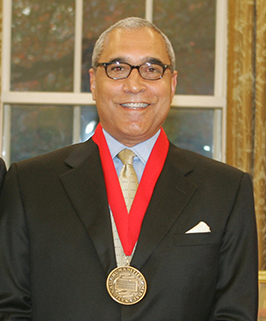
Shelby Steele is an author, columnist, documentary film maker, and a Robert J. and Marion E. Oster Senior Fellow at Stanford University's Hoover Institution. He specializes in the study of race relations, multiculturalism, and affirmative action.

Jill Lepore is an American historian and journalist. She is the David Woods Kemper '41 Professor of American History at Harvard University and a staff writer at The New Yorker, where she has contributed since 2005. She writes about American history, law, literature, and politics.
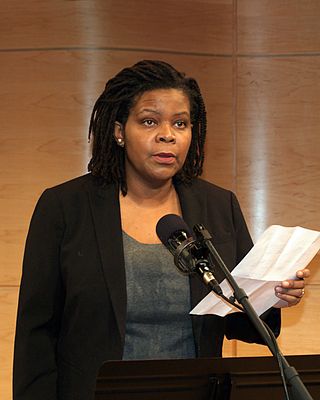
Annette Gordon-Reed is an American historian and law professor. She is currently the Carl M. Loeb University Professor at Harvard University and a professor of history in the university's Faculty of Arts & Sciences. She is formerly the Charles Warren Professor of American Legal History at Harvard University and the Carol K. Pforzheimer Professor at the Radcliffe Institute for Advanced Study. Gordon-Reed is noted for changing scholarship on Thomas Jefferson regarding his relationship with Sally Hemings and her children.
Brenda Wineapple is an American non-fiction writer, literary critic, and essayist who has written several books on nineteenth-century American writers.
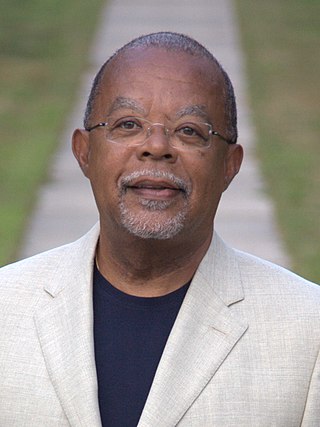
Henry Louis Gates Jr. is an American literary critic, professor, historian, and filmmaker who serves as the Alphonse Fletcher University Professor and the director of the Hutchins Center for African and African American Research at Harvard University. He is a trustee of the Gilder Lehrman Institute of American History. He rediscovered the earliest known African-American novels and has published extensively on the recognition of African-American literature as part of the Western canon.
Emily Bernard is an American writer and the Julian Lindsay Green and Gold Professor of English at the University of Vermont.
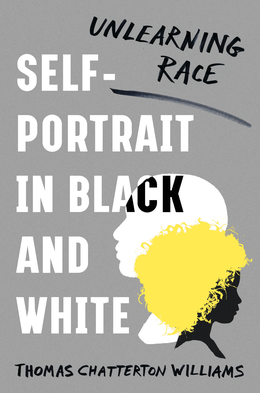
Self-Portrait in Black and White: Unlearning Race is a 2019 book by Thomas Chatterton Williams. It was published by W. W. Norton & Company on October 15, 2019.
"A Letter on Justice and Open Debate", also known as the Harper's Letter, is an open letter defending free speech published on the Harper's Magazine website on July 7, 2020, with 153 signatories, criticizing what it called "illiberalism" spreading across society. While the letter denounced President Donald Trump as "a real threat to democracy", it argued that hostility to free speech was becoming widespread on the political left as well.
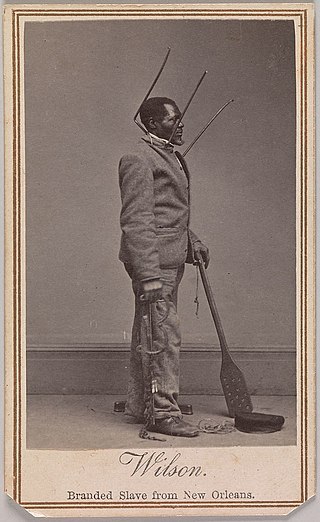
Wilson Chinn was an escaped American slave from Louisiana who became known as the subject of photographs documenting the extensive use of torture received in slavery. The "branded slave" photograph of Chinn with "VBM" branded on his forehead, wearing a punishment collar, and posing with other equipment used to punish slaves became one of the most widely circulated photos of the abolitionist movement during the American Civil War and remains one of the most famous photos of that era.















